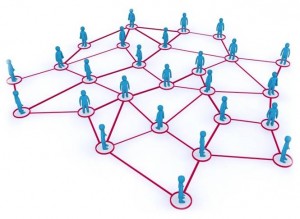Week 8 Reading is all about everything and everyone being connected. An example that was used was a spider’s web. We all weave around and into each other, whether it be through friends or internationally. This reading started off with electric power. This is everything for the world, it is how we live, what we depend on. It is the backbone of the economy and of civilised life. It is the most essential feature of the modern world. Electricity is everything in the world, and most people would never consider living without it. Is it that we can no longer or that the idea is too scary because without electricity how to we connect to the internet? From what we consume to what we do as a society, power is needed to function. For example in a lightening storm and the power goes out for a couple of minutes, what is the first thing you want to do, turn the lights on? Update your status on Facebook?
“The power grid is not really a single entity, but several regional networks cobbled together under the rubric of greater connectivity for the good of all”. The grid is made up of individual components that all link in together. Just like a network. The reading gave an example that I liked about it being like a football crowd. Can be orderly or it can be chaotic and confusing.
Some questions out of the reading I found influential, these being:
“How do norms and conventions evolve and sustain themselves in human societies, and how can they be upset and even replaced”
“How does individual behaviour aggregate to collective behaviour”
-It is all about interacting with each other and our surroundings. A Network is a collection of objects that connect to each other in some way. “The science of networks is lending the concept real analytical power”
Networks are continuously evolving and is a self-constituting system. There is a set of relationships between individuals, leading into the six degrees of separation. We all know someone who will know another person that will know someone else. If you think about it for long enough it becomes confusing, but makes sense that somehow we all know each other. We have connections through not only family but friends, and work colleagues also. Networking is a global interlocking pattern.

